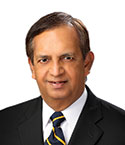Editorial comment
Build a better mousetrap, but don’t forget the cheese
|
“Build a better mousetrap and the world will beat a path to your door.” —Ralph Waldo Emerson Ralph Waldo Emerson had a way with words, but he was no expert in technology adoption. A proposed technology may be innovative, but its adoption depends on an extensive array of psychological, cultural and, perhaps, even political factors. So, along with a better mousetrap, it helps to have a piece of cheese in the form of incentives to overcome the associated concerns. Among the early examples of successful technologies but commercial failures is Thomas Edison’s first U.S. patent, issued in 1869 for an electric vote recorder. To use the vote recorder, each legislator flipped a switch to either a “yes” or a “no” position to transmit an electrical signal to the recorder that included a manual printer. A recording clerk would be required to roll over a sheet of chemically prepared paper to quickly produce a list of the yes and no votes. In those days, the slow pace of roll call voting gave the legislative members an opportunity to filibuster legislation or convince others to change their votes. As such, Edison’s vote recorder produced results too quickly for the legislators, so it was never used. Edison vowed to develop only the products he thought that the public would want. He went on to change the technologyscape of the world through inventions, such as a stock ticker, electric light bulb, motion picture and phonograph. An example of the challenges of introducing new technology in the oilfield was highlighted at a recent SPE technical forum on real-time operations. While centralized real-time operations centers are being used successfully by several IOCs and independents, one major company had to mothball a real-time operations center, built at a cost of about $20 million, for almost two years because the company culture didn’t allow for centralized supervision of drilling operations. Some of the social and cultural roadblocks to the introduction of innovative oilfield technology include: Department silos. If exploration, drilling and completion operations are carried out through separate departments and “handed off” sequentially from one department to another, operations responsibilities and vendor relationships are often hardwired in place. The creation of asset teams with geologists and petroleum engineers working on a common project had to overcome stiff internal resistance in many operating companies. “We’ve always done it this way.” A drill floor advance might be subjected to the objections of a crusty toolpusher, who may be set in his ways. A change in established procedures could be mandated by management, but a better strategy might be a conciliatory approach to show the traditionalist how a new technology will help him do a better job. Lack of collaboration. At the SPE forum, a service company representative said a spirit of collaboration is occasionally lacking with some of the operators. The company rep often lets the service company team sink or swim on its own and is all too willing to “kick the butt” of the service company and bring in a competitor, if things don’t work out as planned. When it comes to new technology introductions, a collaborative approach between the operator and the service company staff is essential to ensuring the project’s success. Political will. Perhaps the greatest technological innovation of the recent decade is horizontal fracturing, which has opened up a 100-year supply of natural gas for the U.S. alone. Instead of accepting this resource boom and working with the industry in producing the gas and liquids in a safe and effective manner, the political establishment and the mass media are exploiting public concerns to create a progressive vs. conservative impasse. The oil and gas industry has a monumental public relations task ahead to place a giant chunk of cheese, to make fracturing the better mousetrap for a world that is starved of cheap energy. |

- Prices and governmental policies combine to stymie Canadian upstream growth (February 2024)
- U.S. producing gas wells increase despite low prices (February 2024)
- U.S. drilling: More of the same expected (February 2024)
- U.S. oil and natural gas production hits record highs (February 2024)
- U.S. upstream muddles along, with an eye toward 2024 (September 2023)
- Canada's upstream soldiers on despite governmental interference (September 2023)
- Applying ultra-deep LWD resistivity technology successfully in a SAGD operation (May 2019)
- Adoption of wireless intelligent completions advances (May 2019)
- Majors double down as takeaway crunch eases (April 2019)
- What’s new in well logging and formation evaluation (April 2019)
- Qualification of a 20,000-psi subsea BOP: A collaborative approach (February 2019)
- ConocoPhillips’ Greg Leveille sees rapid trajectory of technical advancement continuing (February 2019)


